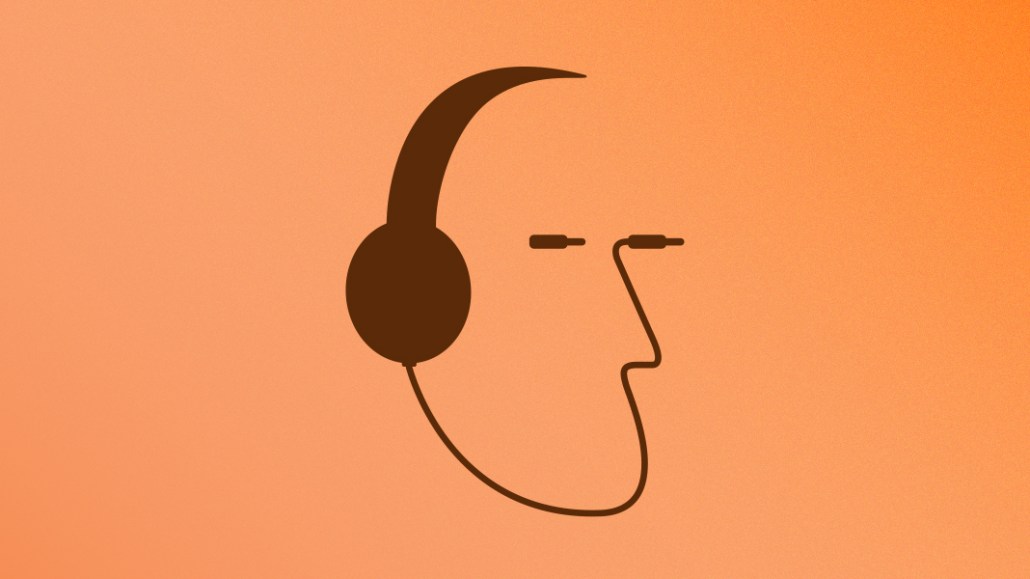Secure your place at the Digiday Media Buying Summit in Nashville, March 2-4
iHeartMedia forms Latinx podcast network to address an underserved audience

Latinx podcast listeners are on the rise, and iHeartMedia has taken notice.
This summer the radio giant will launch a Latinx podcast network called My Cultura that will push out 30 original podcasts in its first year in a bid to support more diverse voices and creators in podcasting, said Conal Byrne, CEO of the iHeartMedia Digital Audio Group.
To start, My Cultura will debut with six shows in July, featuring big names in the Latinx community like Lin-Manuel Miranda, Eva Longoria, Wilmer Valderrama, Rosario Dawson and Gloria Estefan, among others. Podcast shows will range in genres, including pop culture, music, comedy, mental health, finance and news. State Farm has signed on as an inaugural sponsor of My Cultura. Financial agreements of the partnership were not disclosed.
While Latinx people represent 18% of the U.S. population, the demographic has been largely underserved by audio media, Byrne said. iHeartRadio is the largest podcast publisher in the U.S., according to Podtrac’s rankings, with more than 550 active shows that reached 26.8 million unique monthly listeners and over 251 million global downloads and streams in April 2021. According to its latest earnings report, iHeartMedia’s Digital Audio Group revenues were up 70% year-over-year in the first quarter of 2021 compared to the same period last year, to over $157 million. Podcast revenue was up 142% year-over-year. The group contributed 22% of the company’s revenue.
Podcasts created for the Latinx community have “been growing,” said Hilary Ross, vp of podcast media at Veritone One, with companies like Univision, reVolver and Pitaya, which launched in February. “There is a sizable number of Latinx and Hispanic-based podcasts out there, but there is definitely room for more. We still don’t have the Joe Rogan, or voice of that caliber, in that space driving really large numbers.”
During the last decade, the number of Hispanic podcast listeners increased six-fold, from 1.1 million in 2010 to 6.8 million in 2019 (while white listeners increased four times), according to a Nielsen study released in February. In June 2020, an Edison Research study found that 25% of U.S. adult Latinos have listened to a podcast in the last month, and 45% of U.S. adult Latinos have ever listened to a podcast (compared to 37% and 52% of U.S. total population over 18, respectively).
Forty-seven percent of the study’s respondents agreed it is “somewhat important” or “very important” that the podcasts they listen to include stories about and perspectives from their countries of origin. Over a quarter (28%) of U.S. Latino non-listeners said they do not listen to podcasts because there aren’t any that cover the topics they are interested in.
This underrepresentation is “fixable, with focus, with funding, so we decided to set out on a path similar to Black Effect,” Byrne said. iHeartMedia, in a partnership with Charlamagne tha God, launched the Black Effect Podcast Network last fall and has expanded it to include nearly 30 podcasts. Byrne noted that the development of the Black Effect and My Cultura were “running in parallel,” and that the successful launch of the former “validated” the upcoming debut of the latter. According to Byrne, the Black Effect Podcast Network has 100 million downloads to date, with sponsors like Pepsi, AT&T, Peacock and State Farm.
“The data and the research is showing that the listener of podcasts is diversifying,” Ross said. “It’s only natural that on the content side we are seeing that same move towards diversification, with new mini networks, and independent networks popping up.”
The podcast space is no longer “driven by white men talking about sports and doing comedy bits,” said Ross.
More in Media

From feeds to streets: How mega influencer Haley Baylee is diversifying beyond platform algorithms
Kalil is partnering with LinkNYC to take her social media content into the real world and the streets of NYC.

‘A brand trip’: How the creator economy showed up at this year’s Super Bowl
Super Bowl 2026 had more on-the-ground brand activations and creator participation than ever, showcasing how it’s become a massive IRL moment for the creator economy.

Media Briefing: Turning scraped content into paid assets — Amazon and Microsoft build AI marketplaces
Amazon plans an AI content marketplace to join Microsoft’s efforts and pay publishers — but it relies on AI com stop scraping for free.








